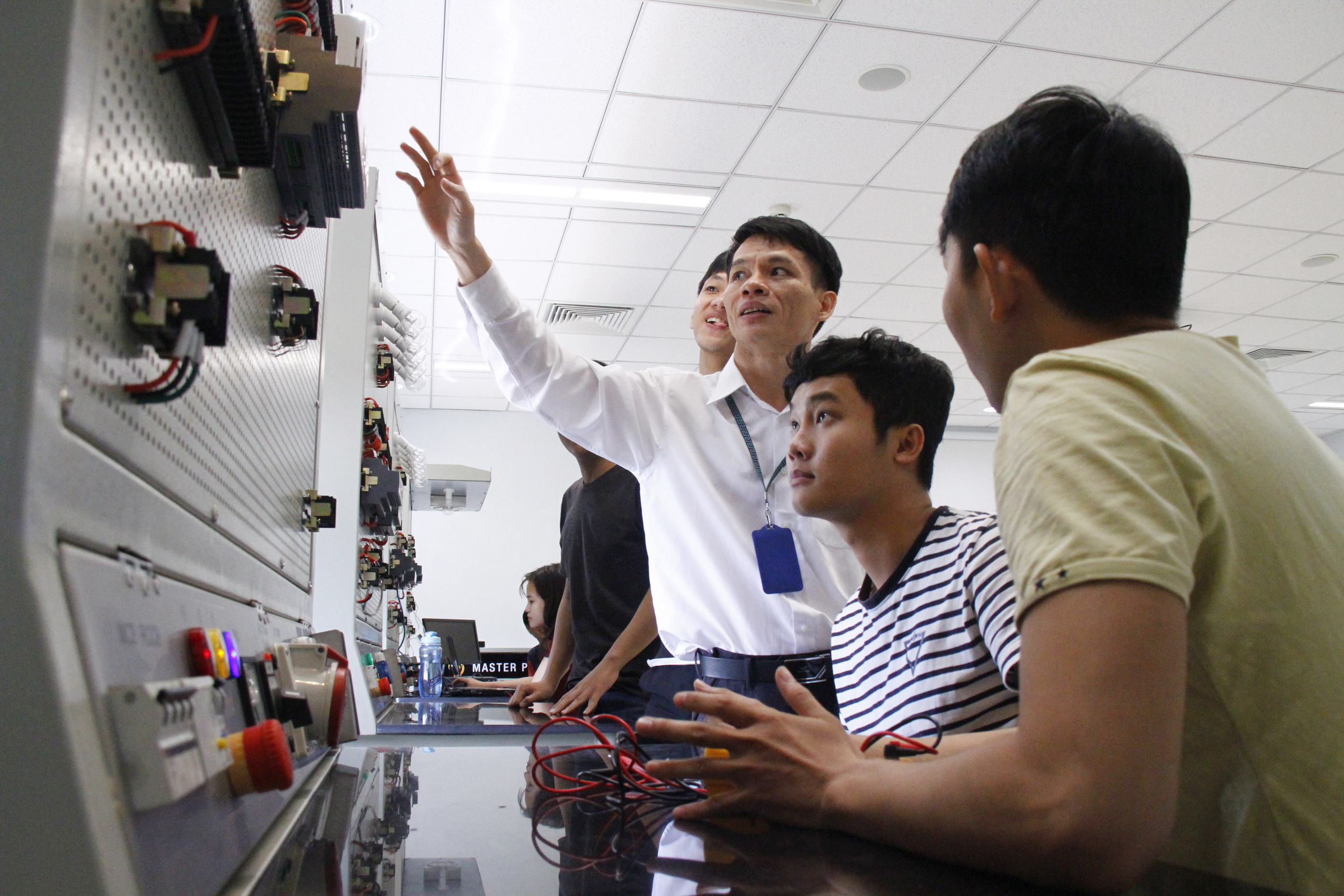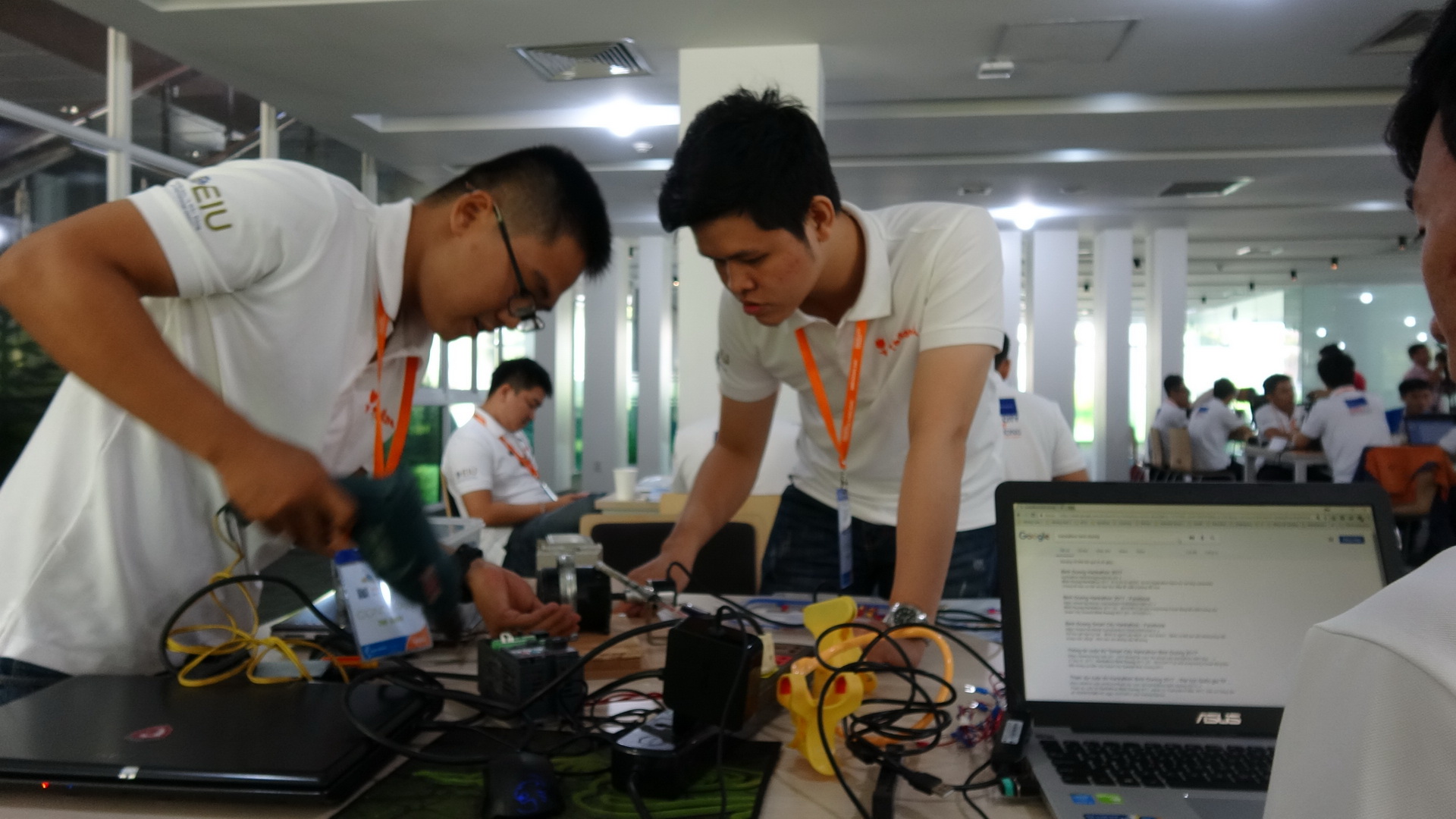Close cooperation between the state, educational institutions and businesses is the backbone of Binh Duong’s master plan to turn the province into a ‘smart city’.
On Monday, the Binh Duong administration and the Dutch Consulate General in Ho Chi Minh City launched the Binh Duong Smart City Summit 2017, which is expected to attract more than 1,000 representatives from both domestic and international enterprises, as well as universities and research institutes.
The summit will brief delegates on the latest Binh Duong Smart City developments which began in 2016, and open discussions on action plans and next steps in its implementation.
The event will also feature a business forum and an exhibition of technology and innovation, aimed at attracting investment and smart city development solutions.
Binh Duong authorities said the key to its successful development was to mobilize resources from both the state and private sector, via a model built around three main arms; government, educational institutions and private firms.
Searching for breakthroughs
On the sidelines of the Binh Duong Smart City Summit, an app development contest is being held at the Eastern International University, seeking breakthrough community applications.
Hundreds of high school and college students have participated in the contest, with winners granted investment to establish startups in the area.
A ‘startup incubator’ has been inaugurated at the Eastern International University campus, offering a 2,000-square-meter work space to encourage innovation.
Nguyen Thanh Trung, a specialist at the incubator, said the facility does more than just offering a work space for young people who “dare to dream and dare to do.” What is more important is to create an environment that connects innovative ideas and encourages young people.
In close proximity to the ‘startup incubator’ is a lighting lab, funded by the Netherlands.
Phan Van Vinh, a university lecturer and a staff member at the lab, said most streets are less frequented by commuters after midnight, so a smart lighting system that can automatically turn on and off or adjust its own level can reduce energy costs by 40-50 percent.
Mai Hung Dung, standing deputy chairman of the Binh Duong administration, said educational institutions, including universities and research institutes, are one of three key factors, besides the state and private enterprises, in finding solutions and unearthing breakthrough ideas in smart city development.
Binh Duong is only 20 years into its development but the province is already considered an active location, with foreign investment worth billions of dollars every year, according to Dung.
The province is now home to some 3,000 foreign enterprises, with a total registered capital of more than US$30 billion.
However, turning these huge investments into an overall improvement in locals' standard of living is important, Dung said, adding that the solution rests with the implementation of a smart city scheme.
 |
| Students are seen at the lighting lab at the Eastern International University in Binh Duong, southern Vietnam. Photo: Tuoi Tre |
Mobilizing social resources
According to the Binh Duong administration, the concept of a ‘smart city’ is all about smart solutions that serve local citizens.
The administration will therefore create programs and mechanisms that allow universities and research institutes to achieve specific targets and cooperate with the state, rather than wait for investment from local budgets.
Peter Portheine, program director for the Netherlands-based technology firm Brainport, a partner of the Binh Duong Smart City Scheme, said the Dutch city of Eindhoven had harnessed cooperation between the state, educational institutions and private enterprises in its own smart city a few years ago.
Strong cooperation between the three parties allowed Eindhoven to form a robust business community capable of employing various technologies to improve productivity. Consequently, Eindhoven’s GRDP regularly outstrips that of other Dutch cities.
Nguyen Van Hung, general director of Becamex IDC, run by the Binh Duong administration, said that while Binh Duong and the southeastern region are Vietnam’s most active economic zones, there are unresolved issues including several delayed development projects and poor traffic infrastructure.
Citing one example, Hung said that 60-70 percent of goods manufactured in Binh Duong are being transported to both Ho Chi Minh City and deepwater seaports in Ba Ria-Vung Tau and Dong Nai Provinces, however the roads are overloaded and regularly marred by congestion.
In addition, Binh Duong remains connected to these provinces via the Dong Nai and Saigon Rivers, but it is not easy to utilize sea transport, given the rocky reefs surrounding the former waterway, and low bridge clearances.
Ba Ria-Vung Tau is currently home to the Cai Mep-Thi Vai seaport, and the new Long Thanh International Airport will be developed in Dong Nai.
“How to transport goods smoothly from Binh Duong to these two provinces, and vice versa, is a problem the Binh Duong administration must solve in its bid to create a smart city,” Hung said.
Like us on Facebook or follow us on Twitter to get the latest news about Vietnam!
























































